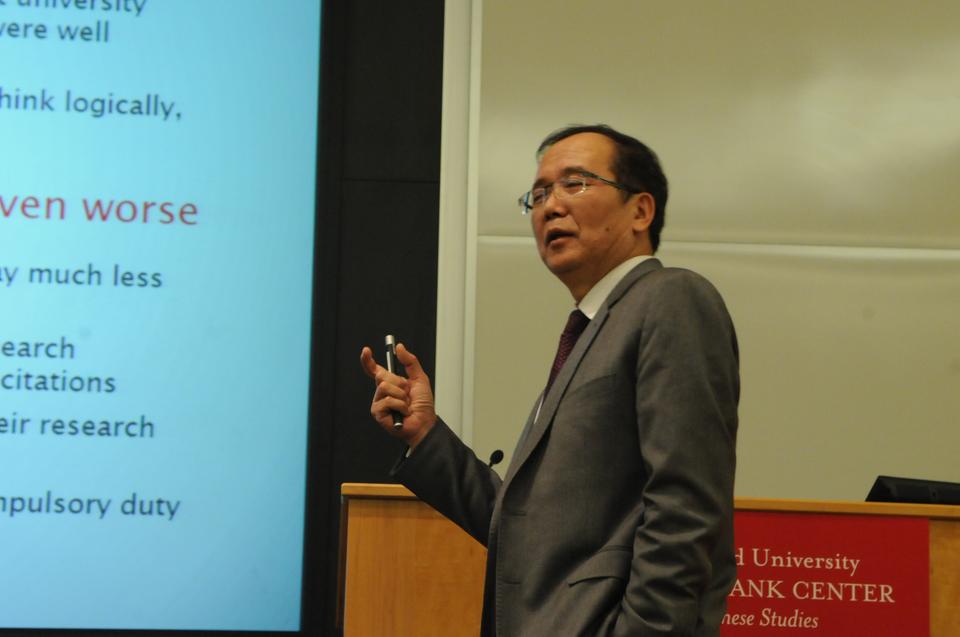
News
Harvard Quietly Resolves Anti-Palestinian Discrimination Complaint With Ed. Department

News
Following Dining Hall Crowds, Harvard College Won’t Say Whether It Tracked Wintersession Move-Ins

News
Harvard Outsources Program to Identify Descendants of Those Enslaved by University Affiliates, Lays Off Internal Staff

News
Harvard Medical School Cancels Class Session With Gazan Patients, Calling It One-Sided

News
Garber Privately Tells Faculty That Harvard Must Rethink Messaging After GOP Victory
Chinese University President Calls for Education Reform

UPDATED: February 1, 2013, at 11:25 p.m.
Harvard’s administrative structure has come under fire for being overly bureaucratic. But for one Chinese university president, it offers a model for progress.
Speaking to an audience in CGIS Thursday afternoon, Chongqing University President Lin Jianhua argued that an outdated educational model that places too little emphasis on teaching has stunted the progress of Chinese higher education.
Lin, who as the leader of Chongqing University oversees one of China’s top-ranked educational institutions, said he believes that Chinese universities pay too much attention to research and too little to their students.
“China has grown economically, and higher education has also dramatically increased for the past couple of years,” Lin said at the start of his talk. “But we are also facing a very serious problem.”
In his talk, which was sponsored by the Fairbank Center for Chinese Studies, Lin also criticized China’s secondary school system for teaching a curriculum that he said does no more than prepare students for a single entrance examination.
“Values, ethics, responsibility, social services, and practices are ignored in education,” Lin said. “They are not considered important.”
Also problematic, according to Lin, is the obsolete nature of the Chinese system. Lin said China’s current model was initially adopted from the former Soviet Union education system, which emphasized efficiency at the expense of individuality.
“The university generates mass graduates just like in an assembly line,” he said.
In his effort to address these problems, Lin called on China to transform its system immediately.
“We shouldn’t miss the boat,” Lin said. “The whole society is calling for reform of higher education. Now is the time.”
To fix these issues at his own university, Lin said he is establishing two new enhanced engineering programs, a tenure system, and a visiting scholars program.
He is also recruiting two new deans from Hong Kong and the United States and is looking to create an administrative structure similar to Harvard’s.
In response to questions about the feasibility of his plan, Lin emphasized the difficulty of reform.
“Whenever you do a new thing in China, you must be realistic to adapt to the system we have now,” Lin said. “You can’t do everything new. That simply doesn’t work.”
Audience members interviewed after the event voiced doubt about how far Lin’s reforms could go in repairing a broken system.
“There are so many challenges,” said Joseph You Guo Jiang, an independent scholar affiliated with the Fairbank Center. “[In China], they do not focus on the whole, the well-rounded student. It’s tough. I don’t see a big change happening in the next 20 years.”
—Staff writer Pooja Podugu can be reached at podugu@college.harvard.edu.
Want to keep up with breaking news? Subscribe to our email newsletter.
